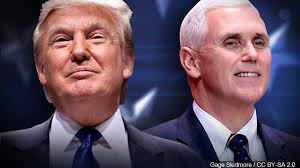Leadership
The Real Heart of Thanksgiving
I have always appreciated reality more than fantasy–actual history compared to fictional stories. There is something about hearing a true story that speaks clearly and powerfully to the heart.
Not that imaginative story-telling cannot be helpful and instructive. Jesus’ use of parables is a good example. But there is something about a real struggle and the lessons learned that reaches into our inner being and shouts, “that can be you too.”
During this special week when the United States celebrates Thanksgiving, I want to share two true stories to enlarge your grateful heart. Both are a testament that thankfulness is often forged in the furnace of affliction.
It is suffering that produces the real heart of Thanksgiving. Read More
It’s Time to Be Brutally Honest about the Democratic Party
 For more than thirty years I’ve considered myself an independent who disliked many aspects of both American political parties.
For more than thirty years I’ve considered myself an independent who disliked many aspects of both American political parties.
But after watching the post-election rioting following the election of Donald Trump, I believe it’s necessary to wade into some “partisan” waters.
It’s time to be brutally honest about the 21st century Democratic Party.
In truth, I did carry a “Republican card” in my wallet for about ten of my forty-five years as a voter. Most of that occurred in the 1980s when our family lived in Washington, D.C. and our involvement in Ronald Reagan’s election led us to identify with the GOP. The only other time was when I ran for statewide office in 2006.
I have no such card in my wallet today.
It’s true that I more often vote Republican than Democrat, but that is simply due to principles. The Republicans are the only major party in America today that openly believes in God, biblical morality, free enterprise, strong defense, and justice via God-given human rights.
On the other hand, I’ve been very critical of the Republican Party for its compromise of those values on many fronts and their getting in bed with the political establishment that now plagues Washington, D.C.
In the past few years some Republicans leaders have been wimpy and weak-kneed–going along with the economic and cultural erosion of the nation. It appears that about sixty million people agreed with me this year in rejecting a wide slate of Republican governors and senators to elect Donald Trump (a political outsider) to the highest office of the land.
So the Republican Party has its warts–plenty of them.
But that is different than the current state of the Democratic Party.
Before I go there, a little history.
You might not be aware that today’s Democratic Party was once called the Democratic Republicans. That union of now antithetical words took place during Thomas Jefferson’s day when political parties were first being formed in our nation. In the late 1820s, the Republican moniker was dropped when Andrew Jackson was elected the first Democrat president. (Abraham Lincoln brought back the Republican brand in 1860).
Since the 1860s, the Ds and Rs have been the primary political groups in the US. For most of that time, their cultural differences were slight–both being strongly anchored to a Judeo-Christian worldview. In general, it’s probably true that Democrats championed the little guy (populism) more than Republicans, and the Rs were greater promoters of business.
But both shared the overall Christian view of life, including reverence for God. Thus it was Democratic icon Franklin Delano Roosevelt who publicly prayed over the radio during the dark days of World War II. In the 1940s, Democrats, like most everyone else, believed in God, his commandments, and the other necessary bedrocks of a freedom loving society.
(There was one major exception to the Democratic Party’s past faith. They were the party of slavery, the Ku Klux Klan, and segregation until very recently. The Democrats were “anti-black” for 150 years–only changing in the 1960s to court the African-American vote which they’d lost in the southern states. This story is well told in Dinesh D’Souza’s documentary “Hillary’s America“–still worth watching after her defeat.)
When I was a young man, I respected many Democrat leaders. I didn’t like the personal morals of John F. Kennedy, but his economic program, vision for the future, and emphasis on strong national defense was excellent policy and historically mainstream. In my own state. Warren Magnuson and Henry “Scoop” Jackson were respectable Democrat senators.
In fact, I think most of my family voted Democrat until the Reagan Revolution. So, for the first two thirds of my life, the Democrats remained a party worthy of support.
But that was then. This is now. The Democratic Party has changed radically in the past generation. Those differences showed themselves starkly in the 2016 election.
Let’s start off with this perspective.
Prior to 2000, people of faith could honestly vote for either party with a good conscience. Not today. Today’s Democratic Party is thoroughly anti-God, anti-morality, anti-little guy, anti-free enterprise, pro-open borders, and pro global government and control. It’s a stunning change from a faith-based core to the aggressive promotion of secular atheism in every area of life.
The 2016 presidential election confirms this. 81% of evangelical Christians and 52% of Catholics voted Republican for Donald Trump (not the greatest “faith” candidate). On the other side, 81% of secular atheists voted for Hillary Clinton.
This reveals the true nature of “gridlock” or the political divide in America. The Democratic Party has become the party of atheism while the Republicans still look to God and his principles.
It’s time to be be brutally honest about how Democratic atheism poses a huge threat to America’s future and the world.
As far as major political parties go:
1. Only the Democratic Party pays anarchists to cause mayhem. This has been well documented from the days of Occupy Wall Street to Black Lives Matter, to the demonstrations in the streets against the election of Donald Trump. None of these protests were grass roots led and motivated. They were all funded by Democratic business people and organizations. Following Trump’s election, a memo went out from a George Soros-based group saying they would pay people to take to the streets to protest Trump. Prior to that, the Veritas tapes revealed that all the violence at the Trump rallies was paid for by the Democratic Party. Democrats aren’t just supportive of the riots. They are consciously funding a spirit of anarchy in America. Let that sink in for a moment.
2. Only the Democratic Party promotes voter fraud. You’d think the issue of voter fraud might come from different extremes of both parties–each scrounging for votes. But that’s not true. It’s only the Democrats who hire community organizers to sign up illegal aliens, vote in the place of dead people, and encourage folks to vote more than once. In fact in the recent election, it is estimated that there were up to three million cases of voter fraud–most of which is Democrat inspired. (Another good reason to keep the Electoral College. Direct vote democracy is far more susceptible to wide-spread corruption.) Truth be told, Hillary Clinton probably did not even win the popular vote because the vast majority of the estimated three million fraudulent votes went to her–illegally.
3. Only the Democratic Party champions the abortion holocaust . Since 1972, the Democrats and their surrogates, such as Planned Parenthood, have enthusiastically supported the slaughter of fifty-five million unborn children. The number of innocent dead is five times that of Adolph Hitler and equal to the barbaric cruelty of Chairman Mao. They talk about “choice”–but what’s the choice? Death. A dirty little secret is that the abortion holocaust is the primary driver of the need for higher taxes and lax immigration policies because in the past fifty years we’ve killed 15% of our people and need the labor and taxes of immigrants to take their place. Hillary even championed late term abortion. Can you think of anything more cruel in America than 55 million deaths?
4. Only the Democratic Party is intolerant of other positions. Exhibit A: the current marches and riots against Donald Trump. Millions of Republicans were equally upset when Barack Obama triumphed in in 2008 and 2012 but they didn’t have a hissy fit in the streets and break windows and shut down businesses. They respected the political process though they disagreed with the outcome. There is no tolerance in progressivism for anything other than their ideas. It is “group bullying” on a scary and dangerous scale.
5. Only the Democratic Party is riddled with corruption and lies. Hillary Clinton was possibly the most deceitful person ever to run for president. The Wikileaks revelations and the e-mail and Clinton Foundation scandals stunk to high heaven–and the voters noticed the odor. You couldn’t believe a word that Mrs. Clinton spoke, and some of that was also true about President Obama who said: “You can keep your doctor if you like,” and “You can keep your plan if you like,” and “Obamacare will save every family $2500.” Rubbish. They both lied continuously as a means to accomplishing their goals.
How could the Democratic Party, in one generation, become so anarchist, fraud-filled, intolerant and murderous? That’s an easy but sobering answer.
Secularism contains no moral code. The Ten Commandments are thrown out and the rule of life is simply “every man does what’s right in his own eyes.” When you reject God and morality, then you can do any thing that you want. You can even justify your crooked or evil practices in the name of the cause.
There is no longer any restraint or character in the Democratic Party–and it shows in the streets and in their campaigns.
What’s happened to the once-great party of Jefferson, Jackson, Roosevelt and Kennedy needs to be thoroughly exposed in our day. The Democrats have become an enemy of the good in America.
The Bible tells us to love our enemies (Matthew 5:44). Let’s pray for a great spiritual and moral renewal of the Democratic Party in the United States.
Yes, Virginia, There’s a God in Heaven
 Every Christmas Day, our local area newspaper publishes an editorial that is titled “Yes, Virginia, There is a Santa Claus.” It was written many decades ago to remind a young girl that Santa Claus is real and it is okay to believe in him.
Every Christmas Day, our local area newspaper publishes an editorial that is titled “Yes, Virginia, There is a Santa Claus.” It was written many decades ago to remind a young girl that Santa Claus is real and it is okay to believe in him.
Last night’s stunning and historic American presidential election brought those words back to my own heart and mind–with a little twist.
Prayers were answered. A miracle happened.
Yes, Virginia, there’s a God in heaven. Read More


